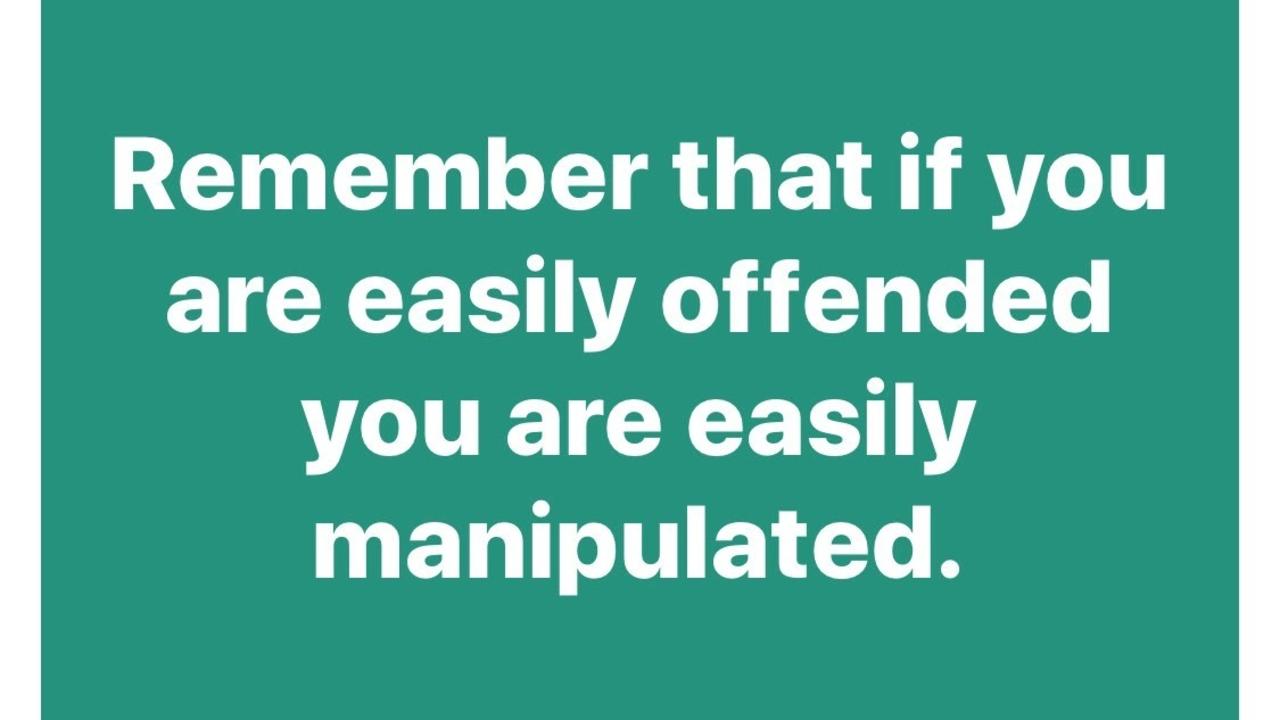Important Discussions with Your Boss – Everything is a Negotiation

Often, I see clients put off important discussions with their bosses because they aren’t really sure how to structure them and fear they may come off as expecting too much and eventually feel rejected. This is unwise. A little preparation can earn you respect and what you want.
How to prepare for the meeting:
- Ask for a specific meeting date/time. This will underscore its importance. Don’t have the discussion after another meeting or as a sidebar conversation. Label the meeting something that is important to the organization – not yourself: ABC Company Priorities and (Your Department).
- What’s the goal? This meeting is not a discussion. You are not mind mapping here. It is a negotiation. Know what you want to occur by the end of the meeting: i.e., I will now spend my time working on important projects, not things that are randomly assigned to me. I have an idea on how to minimize those things and who is more appropriate to do them.
- Know your home base. Don’t let them pull you int ...
Shame at Work

When we experience shame, we live in constant fear of being rejected. Often we don’t even realize that shame is driving our feelings of not being good enough. And we become trapped in avoidance strategies we create to escape the pain. This leaves us in a perpetual state of unrest and denial of the truth of our power over our thoughts.
At work this shows up as edginess, control, lack of connectedness, and withdrawal. Thus robs you of executive presence and effectiveness. In relationships it shows up the same way.
It took me a long time to realize shame was behind my executive exterior. I was successful yet not connecting with colleagues, friends and family in a way I’d have liked. It took a lot of soul searching and humility to admit I felt unloved, unliked and unworthy after my divorce. When I could finally admit that, I could then be kinder and gentler with myself. It was a sigh of relief to not have to pretend I was anything more than I was - not perfect. Just human.
Invite the...
I'd Rather Be Happy Then RIght

If I learned anything this week it’s that we must cease our need to be right and then listen more than we speak. People want to be happy more than they need to be right. Though often they don’t know it. Be the “rent-an-adult.”
Be the leader who can set ego aside and view the situation from a third party perspective. Winning is not the goal if it’s at the expense of your or another person’s self-esteem. Being right is not sustainable if someone else has to be wrong.
That doesn’t mean to suggest that trying to reason with the unreasonable will build alignment - that arguing with fools will get you anywhere. Sometimes we need to walk away and let the masses isolate them. The pain of staying the same must be worse than the pain of change. The biggest fools end up in a diminishing group and ultimately alone. That’s pain enough.
Ask yourself this question before you speak: “Does what I’m about to say advance collaboration or divide?”
See into the other person’s motivation. “Can I alleviate their...
Hate

Can we please stop hating? Hate has become more normalized in our culture over the last several years and it is killing our compassion, culture, productivity and peace. It is also dividing us as a nation. For what? So someone can feel superior? How’s that working? I only see more anger and hate.
Hate is not a sustainable solution to unrest. It is only an externalization of one’s own feelings of despair and unworthiness. So they keep hating as an escape from feeling trapped and powerless in their own self-hate.
It takes a lot of humility in the midst of a heated exchange to remind the other person that you care about them. Just saying that helps to diffuse the vehemence of the discussion. Imagine what would happen the next time you are in an argument at work if you said to the other person, "We are both angry. In spite of that I want you to know that I have your back. I want to come to a solution that serves both our goals."
Happy people don’t hurt one another. Work on yourself fir...
If You Are Easily Offended

Many truly great leaders have a trigger that once tripped eradicates composure, reduces executive presence, and strips effectiveness as a behavior they don’t want to exhibit takes over.
That behavior could be getting emotional, lashing out defensively, crusading offensively, withdrawing in defeat and others. At this point you are off your game and people not in this fight-flight-freeze trap can manipulate you if their motivation serves them to do so.
Everyone has a trigger. It’s where we feel most vulnerable - most hurt, sad, angry, undervalued, small, at risk, ineffective. In a nut shell it’s where we feel most alone. It’s like being immediately thrust to the edge of a cliff with a herd of rhinoceroses charging you and nobody there to throw you a rope.
Great leaders lean in not out from this feeling. They sense it coming, get curious about what the vulnerability is trying to teach them, nurture it like a puppy, throw themselves a rope because they’ve got this, and release the as...
When They Don't Talk About It

We personalize other people’s behavior in an effort to guard against their wrath. This isn’t helpful. Your colleague’s frustration, anger, condescension or dismissiveness might be vented at you but is not rooted in you. There is nothing wrong with you because someone treats you poorly. Good people know how to communicate without making you feel small.
Try asking them this: “If we were to have a better working relationship what would that look like?” This forces them to articulate action not victimization.
Then don’t speak or interrupt. Say only, “Tell me more about that.”
Let them feel heard. DON’T defend yourself - just repeat back what you heard. In there words will be things they are likely wrong about. But let them be validated.
Ask them if they want a better working relationship with you. This is important because if they say “yes,” which they likely will, now they’ve made a commitment. Then align on at least one thing.
Behind their bad behavior is an assumption they’ve ...
5 Executive Presence Calming Strategies for the Moment You're Confronted

Your day is going well. You’ve done your research and are a maven on your project. You’re in a meeting and out of nowhere someone blindsides you with cynical inuendo, overt criticism, passive aggressive posturing or their personal agenda. Your body gets stiff. Your face feels flushed. Your heart is racing. A voice inside your head is screaming, ‘Danger!’ And then in your own defense you do or say something you later regret.
We’ve all been there.
Some people can weather these situations without losing their presence. Others cannot. The difference is that some people have trained themselves to be able to notice what is happening to them, both emotionally and physiologically, lean into it with curiosity as opposed to away in fear, and allow the immediate physiological and emotional response to subside so they can respond appropriately.
Initially, you may think you don’t have time for this transition to take place before you need to react. Like most things, with practice and technique y...
Gaslighting and Your Executive Presence

You know the feeling. You’re in what you think is an honest discussion with someone and suddenly they blindside you with a comment that totally undermines your perspective. At first you are stunned like a deer in the headlights. You think, ‘How could she say that? It isn’t at all true.’ Then you get angry at the betrayal and at this point you have lost your executive presence. You shut down or start defending yourself, never getting anywhere on the real issue.
You know you are being gaslighted when you hear comments such as:
- I didn’t do that.
- You’re overreacting.
- You’re imagining that.
- You’re too sensitive.
- I never said that.
- Why are you __________? (Something that isn’t true.)
- Stop being a victim.
- You’ve got the problem not me.
- You need to let it go.
Gaslighting happens at work and in life. It’s a Machiavellian tactic whereby someone minimizes you by denying that your perception of a situation is true. It’s meant to undercut you - stifle you - wear you down - shut you u...
Three Things to Say When You Feel Threatened by a Bad Boss or Colleague

You have probably heard people talk about boundaries at work. A boundary is an invisible line between what you will and will not allow. Insecure bosses and colleagues often don’t have them. They don’t know what to do with their unrest, so it turns into anger and despair that gets vented in an inappropriate way at people who don’t deserve it. It’s only a short fix for them so they must keep venting to feel better - dreadful for you.
All conflict stems from a need to be right so the first thing you want to do with a difficult colleague is to let them be right. This is difficult to achieve when your ego is in the way. Therefore, when you are working on your executive presence you must start first with learning to self-regulate – manage your emotions in the crucial fight-or-flight moment.
In that crucial moment where you have been offended or feel threatened, take a deep breath and assure yourself you are safe. Be an observer of your own thoughts before you act out. Don’t lash out, wit...
How Honesty Saves Time and Builds Executive Presence

Jason’s boss is the new CEO of a company that has not met budget for two years. The organization is merging with two other organizations, making the culture guarded and tentative. Jason is afraid his position isn’t secure because the CEO continually questions his opinions and doesn’t affirm that he brings any value to the team. Additionally, the executive management team is posturing at their weekly meetings whereby one dominant personality is allowed to single him out with criticism outside of her authority. Jason is feeling judged by his boss and threatened by his peers.
How we conduct ourselves in a tense situation is paramount to how we are viewed as a leader. Maintaining executive presence is extremely challenging when you feel as if you are negatively critiqued. Self-management is key. Being honest with yourself and others is the first tenet to presence. We must be vulnerable enough to accept our discomfort internally before we externalize it with defensive behavior, aggression...
